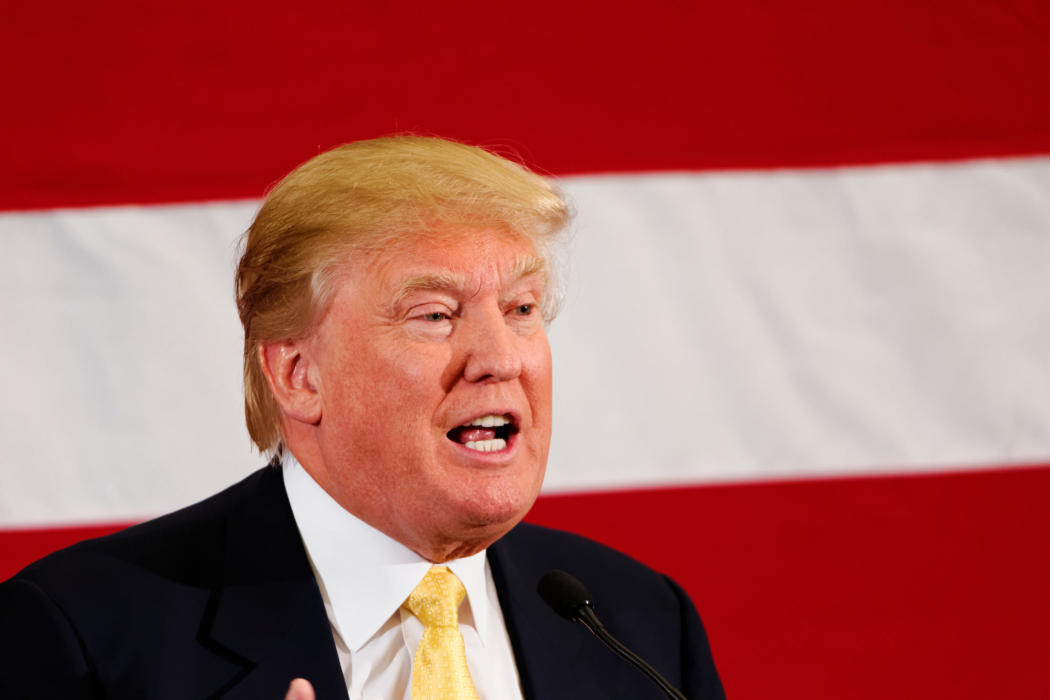Edward-Isaac Dovere and Josh Dawsey provide a pretty thorough run-down about “what’s really bugging Trump about Obama.” But buried in all the talk about Israel and Russia is this little tidbit:
Trump was also irritated by Obama’s comments at Pearl Harbor on Tuesday afternoon in which he said, “even when hatred burns hottest, even when the tug of tribalism is at its most primal, we must resist the urge to turn inward. We must resist the urge to demonize those who are different.” These felt to Trump like direct criticism of the president-elect, according to two people close to Trump.
That’s pretty revealing, isn’t it? When the current president speaks out against hatred and tribalism at an event memorializing the Japanese attack on America that sparked this country’s involvement in WWII, the president-elect assumes it is a reference to him. The mixture of both grandiosity and affirmation of his own use of hatred and tribalism sums up pretty well why so many of us are alarmed that a man like this will soon hold the highest office in the land.
You may have heard that recently three professors of psychiatry wrote this to President Obama:
We are writing to express our grave concern regarding the mental stability of our President-Elect. Professional standards do not permit us to venture a diagnosis for a public figure whom we have not evaluated personally. Nevertheless, his widely reported symptoms of mental instability — including grandiosity, impulsivity, hypersensitivity to slights or criticism, and an apparent inability to distinguish between fantasy and reality — lead us to question his fitness for the immense responsibilities of the office. We strongly recommend that, in preparation for assuming these responsibilities, he receive a full medical and neuropsychiatric evaluation by an impartial team of investigators.
Of course that is not something that a sitting president can require of a president-elect. But it does speak to the level of concern about Donald Trump’s mental instability. To get some idea of what drives that concern, take a look at the criteria used by mental health professionals to diagnose Narcissistic Personality Disorder (NPD).
Summary : A pervasive pattern of grandiosity (in fantasy or behavior), need for admiration, and lack of empathy, beginning by early adulthood and present in a variety of contexts, as indicated by five (or more) of the following:
1. Has a grandiose sense of self-importance (e.g., exaggerates achievements and talents, expects to be recognized as superior without commensurate achievements)
2. Is preoccupied with fantasies of unlimited success, power, brilliance, beauty, or ideal love.
3. Believe that he or she is “special” and unique and can only be understood by, or should associate with other special or high-status people (or institutions)
4. Requires excessive admiration
5. Has a sense of entitlement
6. Is interpersonally exploitative
7. Lacks empathy: is unwilling to recognize or identify with the feelings and needs of others
8. Is often envious of others or believes that others are envious of him or her.
9. Shows arrogant, haughty behaviors or attitudes.
I’m not here to diagnose Donald Trump. And even if I were to do so, it wouldn’t change anything. But here is something interesting to keep in mind:
There are only two ways to deal with someone with NPD, and they are both dangerous. There is no healthy way of interacting with someone with this affliction. If you criticize them they will lash out at you and if they have a great deal of power, that can be consequential. If you compliment them it only acts to increase the delusional and grandiose reality the sufferer has created, causing him to be even more reliant on constant and endless compliments and unwavering support.
We’ve seen both sides of that on display with Trump in both the campaign and transition. But listen to how Mark Bowden describe what he observed back in 1996 when he interviewed Trump.
It was hard to watch the way he treated those around him, issuing peremptory orders—“Polish this, Tony. Today.” He met with the lady who selected his drapery for the Florida estate—“The best! The best! She’s a genius!”—who had selected a sampling of fabrics for him to choose from, all different shades of gold. He left the choice to her, saying only, “I want it really rich. Rich, rich, elegant, incredible.” Then, “Don’t disappoint me.” It was a pattern. Trump did not make decisions. He surrounded himself with “geniuses” and delegated. So long as you did not “disappoint” him—and it was never clear how to avoid doing so—you were gold.
What was clear was how fast and far one could fall from favor. The trip from “genius” to “idiot” was a flash. The former pilots who flew his plane were geniuses, until they made one too many bumpy landings and became “fucking idiots.” The gold carpeting selected in his absence for the locker rooms in the spa at Mar-a-Lago? “What kind of fucking idiot . . . ?”
That genius/idiot duality will likely be the hallmark of how Trump interacts both with his own administration as well as others (including members of Congress and other world leaders) with whom he comes in contact. So I expect a lot of ass-kissing to avoid an explosion. The truth is that an explosion from a POTUS could wreak global havoc. So that might not be entirely unwarranted.




